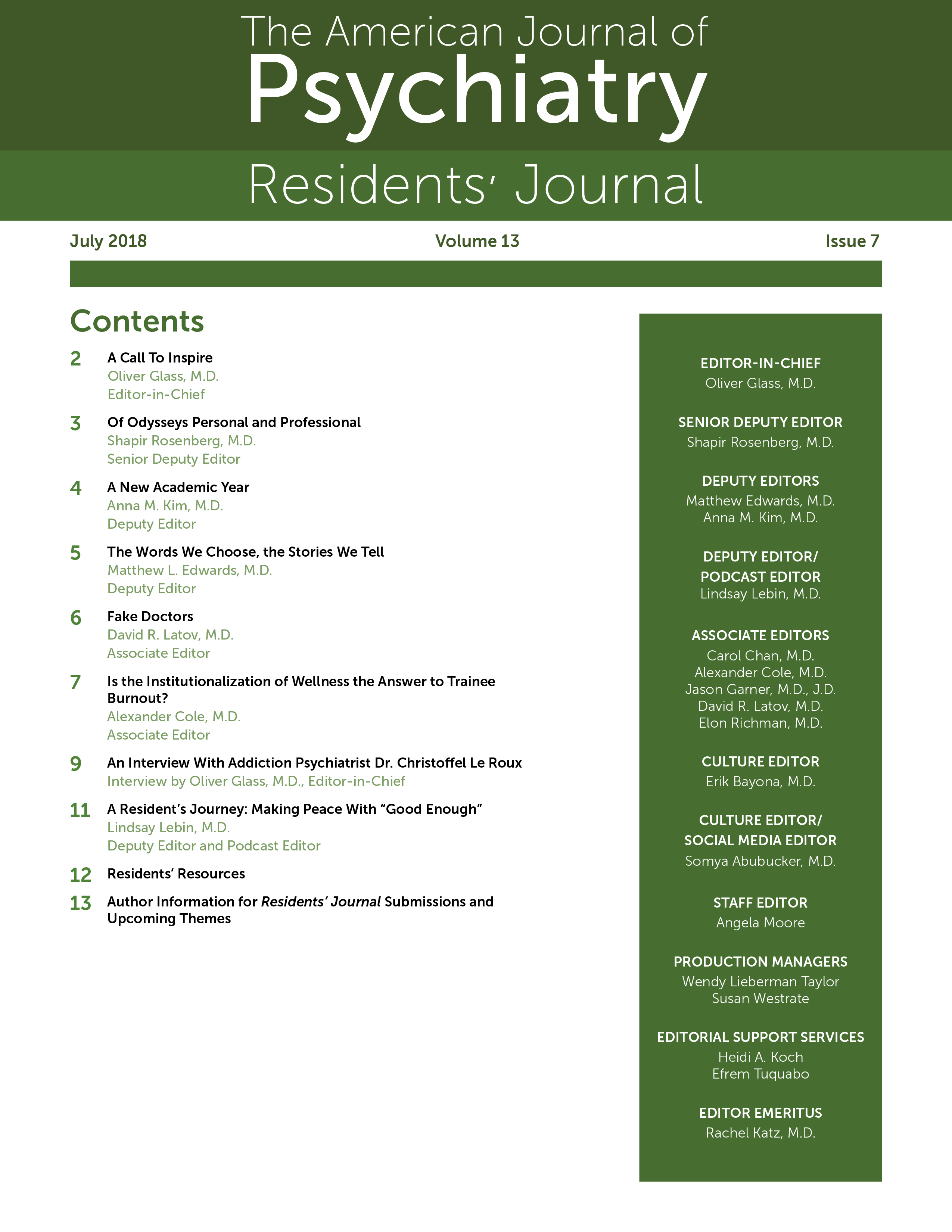He sat across from me in the small room, making occasional eye contact, as he told his life story. His face appeared vacant as he described the neglect and abuse he suffered as a child. I was devastated listening to his words. He was my first therapy patient, and I didn’t know what to say. How could I respond to this? What was the right thing to say? What did I need to do in this moment to alleviate his suffering? I maintained eye contact with him, wishing for a thoughtful, profound interpretation to come to mind. All I could muster in the moment was a quiet, "I’m so sorry." I felt like I should have said something more, something better. I left the session feeling inept and helpless. Surely, someone else would have known what to say.
I am now in my final year of residency and will serve as a chief resident in my program. I have grown significantly as a therapist and a doctor since I started working with my first therapy patient. One of the concepts that has proven most useful to me is "the good enough mother," popularized by British psychoanalyst Donald Winnicott (
1).
Winnicott believed that a mother need not be perfect for a child to thrive. He recognized that despite a mother’s best intentions, there would inevitably be occasional times in which she could not meet her child’s needs. Instead of seeing these moments as maternal failures that were detrimental to the child, he regarded them as opportunities for the child to learn to tolerate an imperfect world and develop resilience. A good mother is not "perfect," but "good enough."
Reflecting on how to apply this concept in my work as a therapist and a doctor, I now recognize that I may not always know the "perfect" thing to say in therapy. I may even say something that unintentionally upsets my patient. Making a mistake or falling short of perfection doesn’t necessarily mean that I have failed my patient or myself. Saying "I’m so sorry" in response to my first therapy patient’s immense history of trauma and suffering may not have been brilliant, but it was a real, human response. It was good enough in that moment to allow my patient to continue moving forward in his journey to recovery.
I am slowly coming to terms with my failings. I now recognize that I may never rid myself of all doubts. I may always tremble a little inside before answering a page. I am "good enough" as a therapist, doctor, and human being, and that is enough. Of course, being "good enough" doesn’t mean putting in the minimum amount of effort or neglecting responsibilities. It means striving for excellence while still acknowledging my inevitable, deeply human foibles and failures. It means embracing uncertainty and vulnerability. In my role as chief resident over the coming year, I hope to help the new interns I work with recognize that they too are "good enough."
